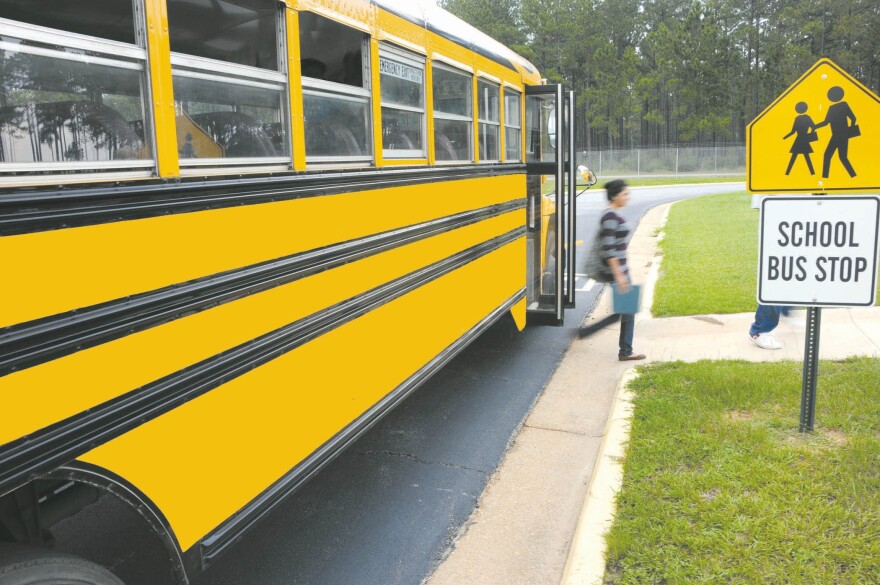New information released by the Iowa Department of Education shows high school graduation rates have finally returned to pre-pandemic levels.
In 2024, 88 percent of students graduated within four years.
That’s an increase of about 1 percentage point from the prior year, and the same rate as the class of 2019 before schools shut down for COVID-19.
Officials say there was an increase in graduation rates for students with disabilities and students from low-income backgrounds.
The graduation rate for English learners fell by less than a percentage point to 73.4 percent.
Iowa saw a higher graduation rate than neighboring states of Illinois and South Dakota, but behind Missouri and Wisconsin.
*In other education news, the leader of the Northwest Area Education Agency, has announced his resignation for the end of June.
In a letter of resignation Dan Cox shared with Siouxland Public Media News, he said the timing of his departure is opportune, as the Iowa lawmakers a year ago created, “the redesigned model of special education supports and services for a fee.”
The system of Iowa’s regional area education agencies were created in the 1970s to offer specialty school services that many smaller districts cannot afford to provide on their own.
Iowa Governor Kim Reynolds called for an overhaul of the state’s AEA’s. One of the many changes requires districts to continue using the AEAs for special education services, but districts would take control over 10 percent of state funding for those special ed supports.
Cox has led Northwest AEA since 2018, and he said he’s proud that the agency has had strong employee retention and delivered quality services to area schools in 10 counties.
*The South Dakota legislative session wrapped up earlier this month.
Of the dozen proposals introduced to bring property tax relief, lawmakers passed only one, which was a bill crafted by a working group convened by Governor Larry Rhoden.
That measure provides a five-year tamp down on total assessed value of all property within a county. That value cannot increase by more than 3 percent. In addition to increasing market value thresholds, it also increases income amounts for who qualifies for an assessment freeze.
That law is supported by a group called Tax Relief for Property Owners. However, others say the property tax issue comes down to spending by taxing districts, so lawmakers established an interim committee to look into reducing property taxes, for plans to be considered in 2026.
Republican Representative Karla Lems contends there should also be a look at the complicated education funding formula.
The basic structure of the state’s education funding formula goes back to 1995, and is calculated based on several factors, including a targeted ratio of teachers to students. So, the more students a district has, the more the formula calculates the total need. A portion is paid for by property taxes, with the state paying the remainder.
*Additionally, the Nebraska Legislature advanced a proposal last week that excludes some workers from getting the paid sick leave that voters approved in a referendum last November.
Voters by a 3-1 margin approved requiring businesses provide paid sick leave for employees – up to 40 hours a year for employees of businesses with fewer than 20 employees, and 56 hours a year for larger businesses.
The Legislature on Friday gave first-round approval to eliminating that requirement for certain employees. Those include seasonal agricultural workers, workers under the age of 16, and workers for businesses with 10 or fewer employees.
State Senator Paul Strommen, lead sponsor of the proposal, said small businesses would not be able to afford the additional costs.
Senators voted 34-14 to give the bill first-round approval. It still requires two more rounds of voting to be passed and sent to Gov. Jim Pillen for his signature.
*In other news, state legislators in the Iowa House are considering passing a bill to prevent lawsuits that claim a pesticide company failed to warn consumers of health risks, as long as the product has a federally-approved label.
The bill was proposed by Bayer, which is the company that has faced 180,000 lawsuits claiming its weedkiller Roundup gave people cancer.
The bill passed last week in the Iowa Senate, when Republican state Senator Mike Bousselot said the bill would still allow lawsuits that don’t use a failure-to-warn claim.
“This is about the very narrow idea that if a company follows the federal law that they’re required to follow to sell a product—they follow it to the T—that you shouldn’t sue them for having put the wrong label on that product,” Bousselot said.
But Democrats say the bill gives pesticide makers immunity from cancer lawsuits, by prohibiting the most important avenue for seeking justice. The bill passed 26 to 21, with six Republicans joining all Democrats in voting no.






